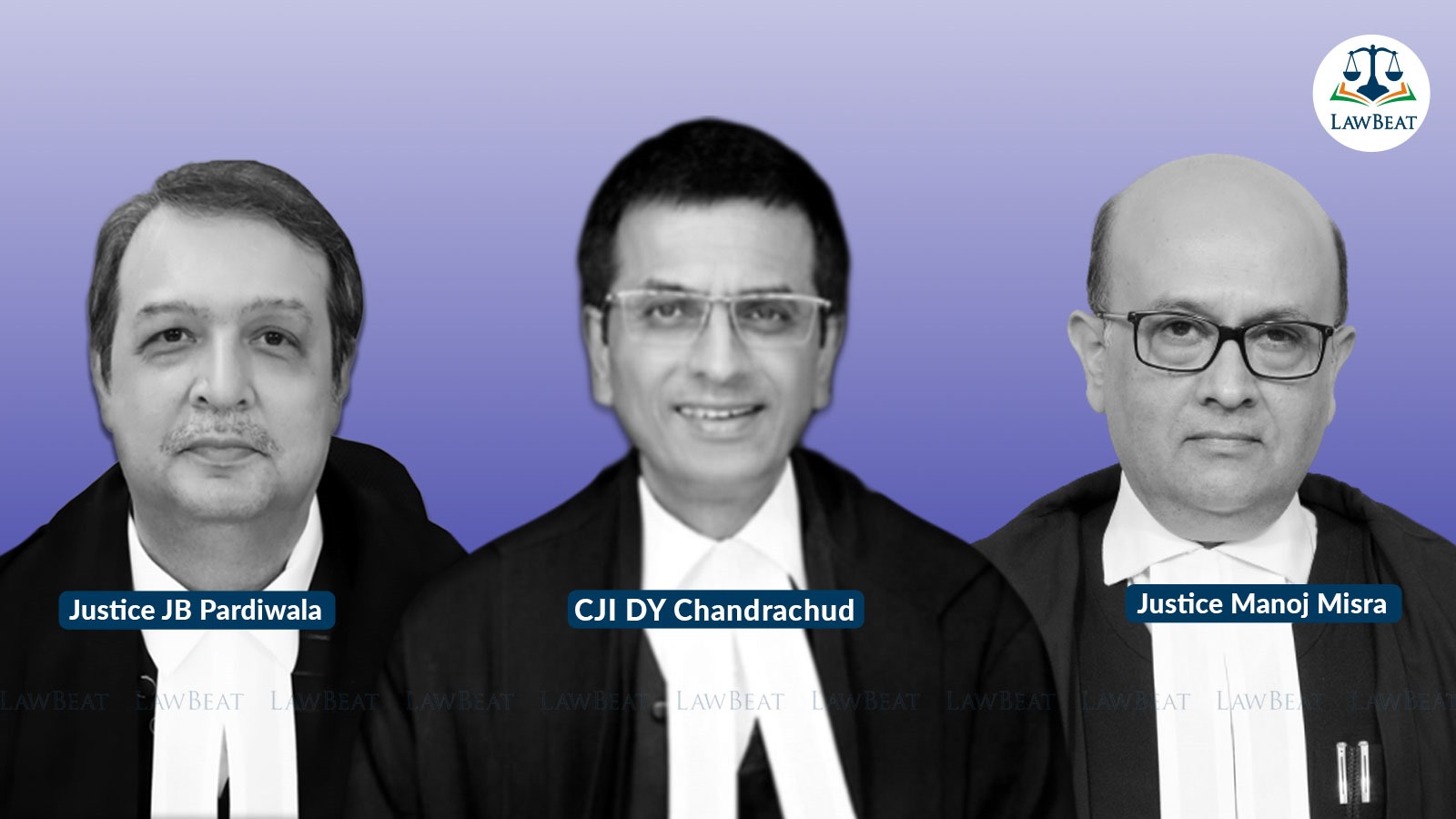SC upholds compulsory retirement of CRPF head constable who assaulted colleague

Court has said to ensure effective control over the Force, if rules are framed, in exercise of general rule-making power, prescribing the punishment of compulsory retirement, the same cannot be said to be ultra vires Section 11 of the CRPF Act
The Supreme Court has on May 8, 2024 said the compulsory retirement is a well-accepted method of removing dead wood from the cadre without affecting his entitlement for retirement benefits, if otherwise payable, while holding that such a punishment is imposable under the CRPF Act.
A bench of Chief Justice of India D Y Chandrachud and Justices J B Pardiwala and Manoj Misra allowed an appeal filed by the Union government against the Orissa High Court's single and the division bench's judgment which ruled against the punishment of compulsory retirement awarded to head constable Santosh Kumar Tiwari for assaulting a colleague with a stick during the forest camp training in 2005.
"It cannot be gainsaid that compulsory retirement is a well-accepted method of removing dead wood from the cadre without affecting his entitlement for retirement benefits, if otherwise payable. It is another form of terminating the service without affecting retirement benefits. Ordinarily, compulsory retirement is not considered a punishment. But if the service rules permit it to be imposed by way of a punishment, subject to an enquiry, so be it," the bench said.
The main thrust of argument by the respondent was that the punishment of compulsory retirement was not one of the punishments mentioned under Section 11 (1) of the Central Reserve Police Force Act, 1949.
It was also contended the punishment of compulsory retirement as specified in Rule 27 of the CRPF Rules is ultra vires the provisions of Section 11 of the CRPF Act, which is exhaustive, and no punishment beyond what is specified therein can be imposed.
"To keep the Force efficient, weeding out undesirable elements therefrom is essential and is a facet of control over the Force, which the Central Government has over the Force by virtue of Section 8 of the CRPF Act. Thus, to ensure effective control over the Force, if rules are framed, in exercise of general rule-making power, prescribing the punishment of compulsory retirement, the same cannot be said to be ultra vires Section 11 of the CRPF Act, particularly when sub-section (1) of Section 11 clearly mentions that the power exercisable therein is subject to any rules made under the Act," the bench said.
The bench also said the intention of the legislature, as indicated in the enabling Act, must be the prime guide to the extent of delegate’s power to make rules. However, the delegate must not travel wider than the object of the legislature rather it must remain true to it, the court said.
In its appeal, the Union government submitted an overview of the CRPF Act would make it clear that the appellant had overall superintendence and control over the Force and the Force is to be administered by the central government in accordance with the provisions of the CRPF Act and of any rules made thereunder through such officers as the central government may from time to time appoint.
The court also noted the central government is not only empowered to make rules for regulating the award of minor punishment under Section 11 but also to carry out the purposes of the Act which includes superintendence of, and control over, the force as well as its administration.
It found the usual disciplinary action which befalls on a delinquent employee is envisaged as a minor punishment under Section 11 of the CRPF Act even though many of the punishments specified therein, such as dismissal, reduction in rank and removal from office of distinction, in common service jurisprudence are considered major punishment. That apart, Section 11 which describes minor punishments declares: (a) that the minor punishments specified in Section 11 may be awarded “in lieu of, or in addition to, suspension or dismissal”; and (b) that the power of the Commandant or any other authority or officer, as may be prescribed, to award the specified.
It also noted Section 11 expressly uses the phrase “subject to any rules made under this Act” before “award in lieu of, or in addition to, suspension or dismissal any one or more of the following punishments”.
"We are of the view that while enacting the CRPF Act the legislative intent was not to declare that only those minor punishments could be imposed as are specified in Section 11 of the CRPF Act. Rather, it was left open for the Central Government to frame rules to carry out the purposes of the Act and the punishments," the bench said.
The court, therefore, held that the punishment of compulsory retirement prescribed by Rule 27 is intra vires the CRPF Act and is one of the punishments imposable. No perversity or palpable error in the conduct of enquiry was found by court.
"The punishment awarded is also not shockingly disproportionate to the proven misconduct. Rather, considering his past service, already a sympathetic view has been taken in the matter and no further latitude need be shown to the respondent who was part of a disciplined force and has been found guilty of assaulting his colleague. Consequently, we find no good reason to interfere with the punishment awarded to the respondent," top court said.
Case Title: UNION OF INDIA & ORS. vs. SANTOSH KUMAR TIWARI
